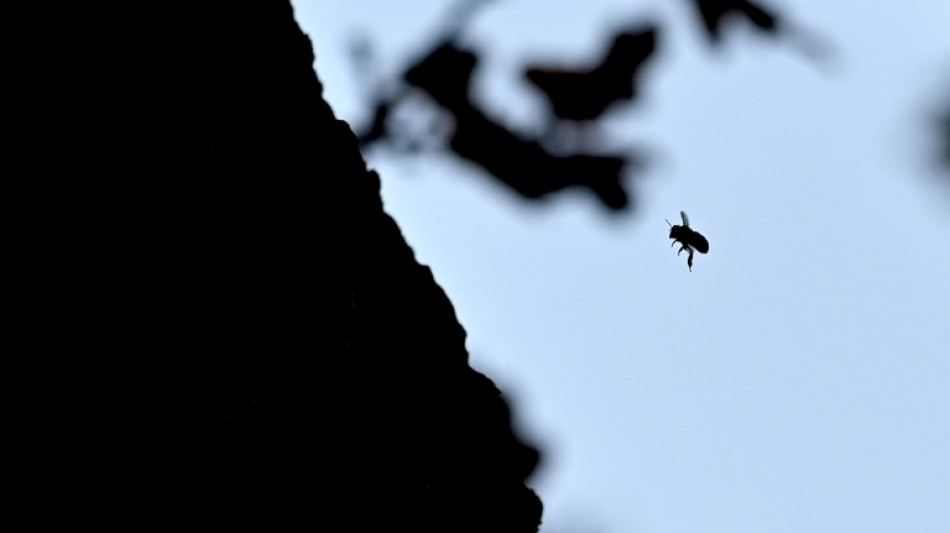Australia gives up fight to eradicate bee-killing parasite / Photo: Ben STANSALL - AFP/File
Australia on Wednesday abandoned its fight to eradicate the destructive Varroa mite, an invasive parasite responsible for the collapse of honeybee populations across the planet.
Desperate to keep Varroa out of the country, authorities have destroyed more than 14,000 infected beehives since the tiny red-brown pest was first detected north of Sydney in June 2022.
The government on Wednesday conceded its US$64 million eradication plan could not stop the mite from spreading, saying the country's beekeepers should now prepare to live with the incursion.
"The recent spike in new detections have made it clear that the Varroa mite infestation is more widespread and has also been present for longer than first thought," officials said in a statement.
Australia was one of the last major beekeeping countries to successfully keep Varroa at bay.
Smaller than a peppercorn, Varroa mites attach themselves to honeybees and slowly feast on their body tissue from the outside -- eventually spreading through hives and causing colony collapse.
They are the "most serious pest of honeybees worldwide", according to the Australian government.
Australian National University ecologist Saul Cunningham said the Varroa infestation would also damage agricultural industries reliant on pollination.
"Varroa mite will cause significant economic damage in agriculture, and so it is vital that we focus on adaptation to life with Varroa," Cunningham said.
Australia's native honeybees have proven resilient to Varroa mites but do not currently play a major role in honey production or agricultural pollination.
University of Sunshine Coast researcher Volker Herzig said the "final nail in the coffin" was a government decision that allowed beekeepers to transport their hives across state boundaries to help with pollination.
Every year, some 270,000 beehives are trucked into the state of Victoria to pollinate almond orchards -- an annual pilgrimage billed as the "largest movement of livestock" in Australia.
Herzig said Australia must "now find permanent solutions for managing our beehives", which "most other countries around the world" have been doing for years.
The government's decision was "quite a shock", said native bee researcher James Dorey of Flinders University.
"The impacts of this decision will be felt for decades to come in how beekeepers manage their hives and how farmers pollinate their crops," he said.
"In particular, farmers may not be able to rely on passive pollination from feral honeybees any longer."
C.F.Salvi--BD
